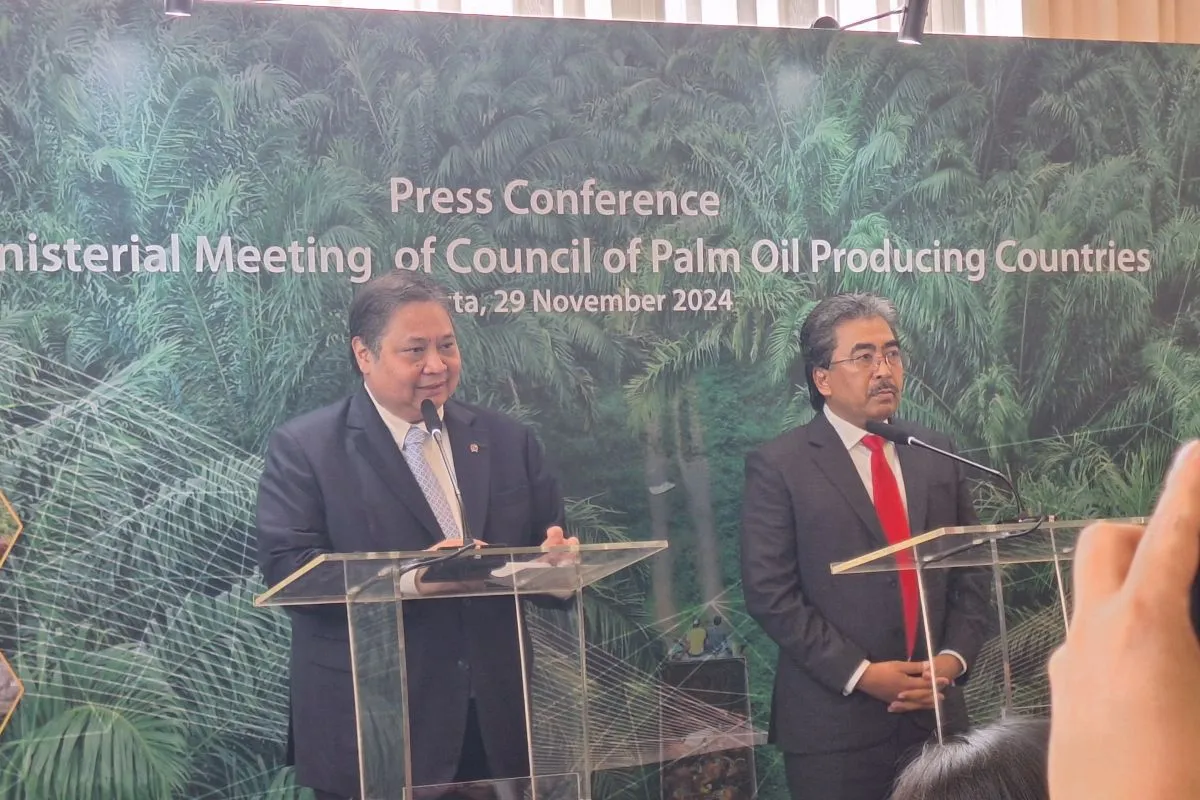Jakarta, November 29, 2024 – The Europe Today: Indonesia’s Coordinating Minister for Economic Affairs, Airlangga Hartarto, reaffirmed the commitment of the Joint Task Force on the European Union Deforestation Regulation (EUDR) to advancing collaboration between Indonesia, Malaysia, and the EU. His statement came during a joint press conference with Malaysian Minister of Agriculture and Commodities Johari Abdul Ghani at the 12th Ministerial Meeting of the Council of Palm Oil Producing Countries (CPOPC) held in Jakarta on Friday.
Minister Hartarto emphasized the ongoing efforts by both nations to secure recognition of their respective sustainability certifications—Indonesian Sustainable Palm Oil (ISPO) and Malaysian Sustainable Palm Oil (MSPO)—as equivalent to the European standards and the Roundtable on Sustainable Palm Oil (RSPO).
“Indonesia and Malaysia are united in advocating for fair treatment of our sustainability frameworks. These standards align with global sustainability goals and should be acknowledged on equal footing with European measures,” Hartarto said.
Addressing traceability concerns raised under the EUDR, Hartarto stated that both countries have established robust mechanisms, including dashboards and digital platforms, to ensure companies meet traceability requirements. However, he noted that the EU’s demand for sharing specific location data posed significant challenges for Indonesia.
“If they (the EU) want access, the data is available through platforms we have prepared for corporations. Traceability is not an issue, but sharing precise location data is overly burdensome,” he added.
Malaysian Minister Johari Abdul Ghani highlighted the critical need to protect the welfare of small-scale oil palm farmers, who form a substantial part of the industry.
“Large corporations in both Indonesia and Malaysia are ready to comply with the EUDR. However, small-scale farmers, who number approximately 2.5 million in Indonesia and 400,000–450,000 in Malaysia, face significant hurdles,” Ghani stated.
To ensure their interests are not sidelined, both governments continue to advocate for an inclusive and equitable approach in their dialogue with the EU.
The ministers expressed optimism that sustained discussions with the EU would lead to a more comprehensive understanding of the realities faced by palm oil-producing countries.
“We need to ensure that the EU recognizes the unique legal and socio-economic frameworks of each country. As long as the measures benefit the environment and advance sustainability, we are committed to compliance,” Ghani remarked.
The CPOPC meeting underlined the shared resolve of Indonesia and Malaysia to champion the interests of their palm oil sectors while fostering a balanced and collaborative approach to global sustainability initiatives.


